The situation looks bleak: 1.7 million Americans are missing from the workforce compared to February 2020. That means the workforce shortage remains stuck at pre-pandemic levels. In the manufacturing space, the numbers look even more dire as studies predict 2.1 million unfilled jobs by 2030.
“Everybody is focused on the technology itself — building new plants, implementing new energy and technologies — but who will build and maintain all of this?” says Ksenia Solomatina, who launched her Sacramento-based startup, PowerTechs, to answer this very question.
PowerTechs uses AI, augmented reality and virtual reality to create immersive training environments (or XR cockpits). For example, users might enter a VR simulation of a power plant to tackle real-world challenges, such as repairing or assembling equipment. Trainers can remotely monitor their progress in real time to assess skills and abilities. Did they complete the task efficiently? Did they appear confused? Did they ask for help?
“Using XR technology enables PowerTechs to immerse workers and students in a realistic, simulated environment where their skills can be assessed authentically,” Solomatina says. “This method provides a more accurate evaluation compared to traditional tests, as individuals are less aware that they are being assessed and tend to focus more on the task at hand.”
This virtual hands-on training approach allows employers not only to gauge competencies, but also reduce training time and costs, Solomatina says. She estimates these programs could cut costs by up to 90 percent and shorten education from two-to-four years to as a little as four months. As a result, businesses can boost productivity, focusing on increasing revenue rather than waiting years for new hires to develop necessary skills.
“We’re experiencing the largest change in the workforce that we have ever had,” says Nate Schmidt, managing director for Techstars Alabama Energytech Accelerator. “Take energy. All innovations and how we produce energy, renewable energy, all of that is completely changing and we need skills to service that.”
It was Schmidt’s job to scour the world to find promising energy tech companies to support. He found Solomatina in Europe and recruited her. Her mission aligned with his interests in people preparing themselves for new economies.
“We need folks that can repair EV stations instead of working on burning fossil fuels,” he says. “This is changing at such a rapid rate. Then you throw AI into the mix and there are a lot of people who are going to be disrupted and reskilled.”
Schmidt has invested in 30 companies through Techstars over three years. The accelerator program consists of a 13-week bootcamp. Notably, Solomatina has been one of the best at engaging post-program, he says, checking in, making sure people who support her stay informed.
Solomatina’s background in workforce development set her on this path. Her first startup, a career coach for white collar jobs, showed her the gaps in support for blue-collar industries. With a team of six experts across various fields, she notes, the startup has already partnered with five community colleges with more than 15 companies in its pipeline. After securing initial funding through the Techstars program, PowerTechs plans to launch a second funding round next year.
But the manufacturing sector can be “slow and conservative” when adopting new technologies, she says. Also, in times of transition, the focus tends to be on the technology itself, she says, not the workforce. While it’s understandable for management to prioritize the technical aspects, she emphasizes that people can’t be an afterthought — especially in a time when, as she puts it, “resumes are zombies.”
“Resumes don’t work anymore,” Solomatina says. “ChatGPT appeared with this interface so everybody can create an ideal resume in two minutes. The problem with resumes is, you can put everything you want in your resume, but that doesn’t mean you are able to accomplish this task.”
–
Stay up to date on innovation in the Capital Region: Subscribe to the Comstock’s newsletter today!
Recommended For You
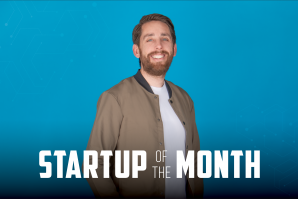
Startup of the Month: Unstructured
Company helps businesses turn raw data into AI-friendly formats
Think about a global company where each department has its own unique jargon, and employees speak different languages. To thrive, this company would need a way to keep valuable information from getting lost in translation.
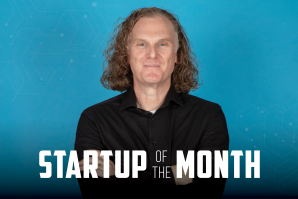
Startup of the Month: 811spotter
Ticket management software for contractors’ efficiency, safety
811 is the national toll-free, call-before-you-dig number. Homeowners, excavators and contractors must call 811 before excavating to have underground utility lines marked to prevent accidental damage. But the system is flawed and inefficient, according to 811spotter co-founder and CEO Marc Krichman.
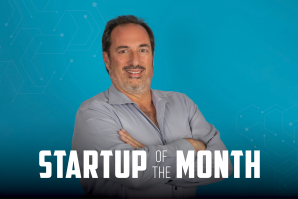
Startup of the Month: Soar Optics
Company targets microplastics in water with high-tech microscopes
Microplastics can be found everywhere, from Antarctica to Mt. Everest to breast milk. A Western Regional Winner in 2022, Soar Optics develops technology to identify these microscopic particles in water.

Startup of the Month: Inspirame
College and career navigation platform aims to repair education pipeline
In 2019, CEO Maria Medrano co-founded the equity-driven startup Inspirame to repair these critical gaps in college enrollment and workforce development.
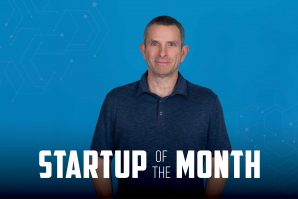
Startup of the Month: AgriNerds
Mapping tool helps farmers track carriers of bird flu
In recent years, avian influenza (or “bird flu”) has been on a rampage, wiping out wild and domestic birds, disrupting the environment, and causing a shortage of eggs and poultry meat. The Davis-based startup AgriNerds aims to help farmers to identify potential risks and protect poultry against the threat of diseased ducks.
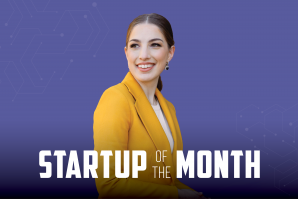
Startup of the Month: 3D Organic Polymer Silk
Trio of researchers aim to revolutionize orthopedic medicine with spider silk
With over 3 billion years of evolution under its belt, the natural world has a pretty long track record of creativity. Knowing this, three interdisciplinary researchers at UC Davis looked to the golden silk orb-weaver spider to develop an innovative biomaterial.



